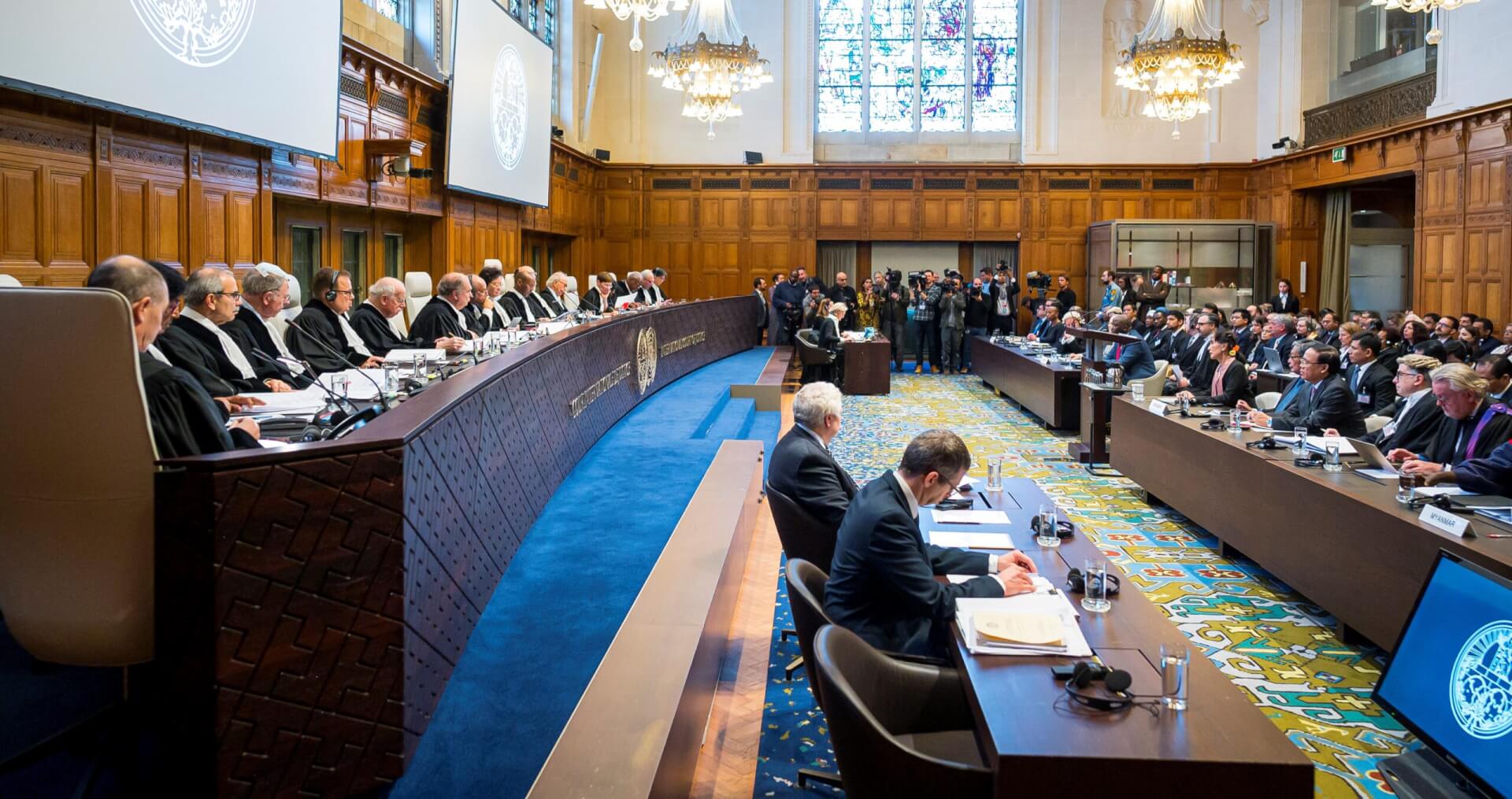Myanmar’s military government said on Monday that the International Court of Justice’s (ICJ) case on genocide against the country’s Rohingya minority has “no grounds” to proceed.
The ICJ began hearing preliminary arguments of the case yesterday. Myanmar’s representative, Ko Ko Hlaing, argued that the Gambia, the case’s prosecutor, is acting as a proxy for the Organisation of Islamic Cooperation, which is not a party to the convention and therefore has no legal standing to bring a case.
“Myanmar raises these preliminary objections with utmost respect to the court,” Hlaing said. At the same time, the representative assured that “the government of Myanmar remains committed to addressing the problems in northern Rakhine state, which have a long history.”
He further added that the junta is “determined to solve these complex problems through peaceful means of negotiation and reconciliation.” On the basis of these arguments, the junta aims to dismiss the case before it moves on to substantive hearings.
#Myanmar junta representative Ko Ko Hlaing, minister for international cooperation, appearing at the World Court in The Hague. He is the new agent in the genocide case against Myanmar, over its treatment of the Rohingya, replacing Aung San Suu Kyi. pic.twitter.com/kYjyA1UvqK
— Poppy McPherson (@poppymcp) February 21, 2022
Ko Ko Hlaing is the minister for international cooperation for Myanmar’s junta government. His appointment as the leader of Myanmar’s delegation to the ICJ comes after the controversy of representation that was triggered by the February 2021 coup. Hlaing has already been sanctioned by the United States for his role in upholding the unlawfully instated military government.
Earlier this month, Myanmar’s shadow government, the National Unity Government (NUG), withdrew all preliminary objections to the case and urged the international body to accept Myanmar’s Permanent Representative to the United Nations, Ambassador Kyaw Moe Tun, as Myanmar’s official representative in the case.
In an official statement, the NUG argued that its former objections would be “detrimental to the interests of Myanmar [...] and to the cause of justice for the Rohingya people” and further emphasised the shadow government’s view of the “importance of accountability for the military’s violations of international law.
The ICJ case was filed in November 2019 by Muslim-majority African nation the Gambia. It concerns the Tatmadaw’s operations against the Rohingya in 2016 and 2017, following which more than 730,000 Rohingya Muslims fled Myanmar’s Rakhine State. According to the Gambia, the military’s atrocities during this period constitute alleged violations of the 1948 Convention on the Prevention and Punishment of the Crime of Genocide.
At the time, Myanmar’s democratic leader, Aung San Suu Kyi, had denied all allegations of genocide and stressed that the military had carried out legitimate counter-terrorism operations. In fact, Myanmar authorities have consistently maintained that the military did not commit genocide or systematically use “disproportionate force” against innocent civilians. Instead, they contend that the forces embarked on an admittedly “haphazard” campaign to root out militants and insurgents.

